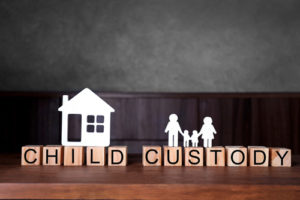New Jersey Legislature Considers Creating a Presumption of Joint Legal Custody and/or Shared Physical Custody; Why Shouldn’t Both Parents be Treated Equally?
The issue of whether a father has the same custodial rights as a mother is again now in the news. State legislatures throughout the nation are again wrestling with this age-old question; should the law provide for a presumption either in favor or against granting both parents equal custodial rights to their children. Should we […]
The issue of whether a father has the same custodial rights as a mother is again now in the news. State legislatures throughout the nation are again wrestling with this age-old question; should the law provide for a presumption either in favor or against granting both parents equal custodial rights to their children. Should we presume 50/50 custody and parenting time whenever there’s two separated parents who, for whatever reason, can no longer live together?
Bills have been introduced in Alabama, Arizona, Connecticut, Indiana, Iowa, Kentucky, Maine, Maryland, Massachusetts, Michigan, Mississippi, Missouri, Montana, New Hampshire, New York, North Dakota, Oregon, South Carolina, South Dakota, Texas, Vermont, Washington, West Virginia, Wisconsin and Wyoming addressing this issue. Although these bills have been supported both by democrats and republicans, republicans have sponsored 22 of the new bills, while democrats have sponsored just 4 of the new bills. The strongest and most vehement opposition to these bills has come from the State Bar Associations; lawyers that practice family law generally oppose legislation seeking to impose a presumption of “shared parenting.”
The two bills that have been introduced in the New Jersey legislature are S3479 and A5189. These bills were introduced in November of 2017; they seek to establish a presumption of joint legal and physical custody in child custody matters; declaring that joint legal custody and shared physical custody are in the best interest of a children and should accordingly be imposed by law unless good reason exist to warrant otherwise. Under existing New Jersey law, a judge cannot presume and/or order joint legal or physical custody unless the parties agree to same and/or after a costly and potentially acrimonious custody trial to determine the best interests of the children. If either of these two shared parenting bills were to become law, a rebuttable presumption of shared custody would be recognized and ordered by the court unless one of the parents objected to same and could prove that the other parent was unfit. The new laws would accordingly create a presumption in favor of joint legal and physical custody; thereby imposing upon divorcing parents the obligation to communicate with one another and make joint decisions of and concerning their children; including the establishment of a parenting time schedule whereby both parents get to see their children approximately fifty percent (50%) of the time. New Jersey Bill A1091, which was pre-filed for introduction in the 2018 session, strengthens the already introduced legislation.
While fathers’ rights group such as National Parents Organization believe mothers receiving a higher percent of custody is out of date thinking, some women’s rights groups believe these laws may remove protections against abusive former spouses and take away the important fact-sensitive discretion our judges have historically utilized in deciding what custody and parenting time arrangement would be best for the children. According to an article in The Washington Post, these new laws are harmful to children as they apply to only 10% of the cases, but will affect all custody battles if enacted. It has also been argued that laws that require joint physical custody could potentially lead to the elimination of child support in some states; potentially disrupting a system that was designed to help economically -dependent women and children, who have historically been paid less in the workforce while performing more unpaid labor at home.
The statistics do, however, show, that children with stronger relationships with their fathers, do better in school and have more self-esteem. They also show less risk of incarceration or dropping out of school, but that seems to have more to do with single parent households of very poor families, rather than on which parent enjoys custodial and/or parenting time with the children.
The new laws may also result in unintended consequences in those cases where one parent has employment responsibilities which prevent that parent from exercising truly equal parenting time. Hopefully, whatever final legislation may be passed, will also address these sorts of factual circumstances and, in so doing, still permit the judge’s discretion to award custody and/or parenting time in accordance with the children’s best interests
One popular solution many states are adopting is mediation and creating parenting plans instead of expensive and contentious litigation. New Jersey is one of the leading States in this regard; we are a “child-centered” state that requires mediation and parenting plans before matters involving custody and parenting time can be litigated before the court. This solution of having a mediator help the parties resolve their custody/parenting time issues is by far a better way to resolve matters of and concerning their children; whether legal presumptions are created or not, divorcing parents will always have the responsibility to their children to at least attempt to resolve their disputes through mediation and/or counseling before asking a court to decide same.

